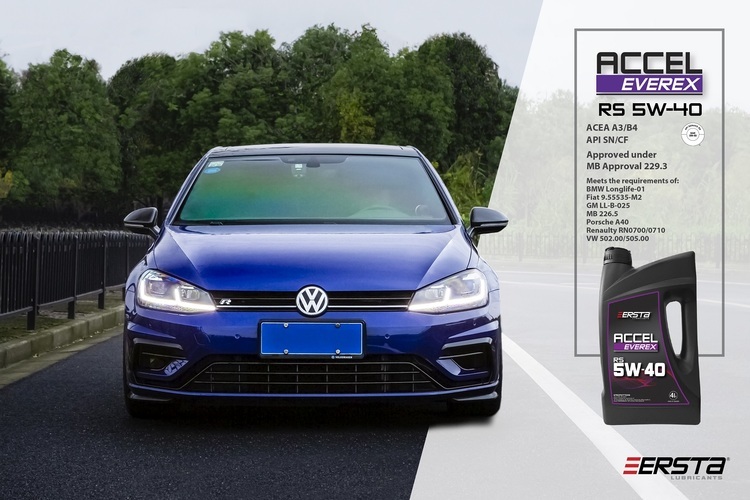Engine Oil: How to Pick the Right One for Your Car
 (Photo Credit: Eersta Lubricants)
(Photo Credit: Eersta Lubricants)
Yet another 8,000 kilometres have passed. Your car is due its next oil change, and it makes it very clear to you with its warning lights on the dashboard.
But before you drop it off at a mechanic of your choice, it does not hurt to know that not all engine oils are created equal.
This problem is exacerbated as there is a huge range of oil manufacturers to choose from, as well as many different grades of oil within the same brand. If you are not mechanically inclined, this can prove to be a huge headache.
It is of utmost importance that you choose the correct oil for your engine. A quality oil change will set you back around $150 - an engine rebuild due to damage induced by old and sludgy oil, will set you back at least $2,000.
Understanding Oil Speak

Before you even rush out to buy some fresh replacement oil for your vehicle, there are titbits of information that will help you make a more informed purchase.
All engine oils will come with an alphanumeric rating, typically a set of 2-digit numbers separated by a W, such as in 05W-30, 10W-20, etc.
To cut a long story short, the first number in this ‘code’ refers to the viscosity of the oil at low temperatures. What this essentially means is that oils with a lower first value will be able to circulate through your engine more quickly during a cold start.
The ‘W’ in the code refers to the oil’s suitability for use in cold climates. The second number refers to the oil’s viscosity at the engine’s operating temperature – the higher the value, the greater its viscosity at the operating temperature.
The alphanumerics only tell part of the story though. Oil stability, as well as its formulation, can greatly affect the way it goes about keeping your oily bits, oily.
Referring To Your Service Handbook

Your car’s manufacturer would have included the recommended grades of oil in the owner’s manual.
If, however, you own a vehicle with a lightly ‘massaged’ engine, you may want to consult a veteran mechanic to see what grades of oil should be used instead. As they may produce power levels outside of OE parameters, said OE oil standards are insufficient. Essential it is then, that you get a higher-grade oil with additional heat dissipation and lubrication
When Do I Use What Type Of Engine Oil?
When it was first dreamt up in the 1800s, there was no standardised, general formula. Each manufacturer would have blended a mixture of crude oil, animal fat and vegetable oil in a bid to eek out more performance.
However, this mixture was inconsistent. Synthetic oil was then created, which made for more stable and reliable lubrication.
For Reliable, Long-Term Engine Protection: Synthetic
Synthetic oils are derived from a chemically engineered process. It ensures uniformity of the engine oil molecules, and is purer than conventional oil manufactured from crude oil. It also better resists oxidation and temperature too.
For The Budget-Oriented: Mineral
Mineral oils are manufactured from crude oil, and is a less processed product as compared to the synthetic stuff. What this means is that its composition is less homogenous, which does mean a lack in thermal and lubricative prowess over its synthetic cousin. This more affordable motor oil is suitable for cars with simpler engines, and for undemanding drivers!
For The Best Bang-For-Buck: Semi-Synthetic
This is the middle ground between the former 2 types of oil. Semi-synthetic oils use a blend of synthetic and mineral oils, and can better resist oxidation and higher temperatures than pure mineral oil. However, it does not perform as well as the fully synthetic stuff.
For The Heavy User: High Mileage
High-Mileage motor oils have additives to minimise the impact of excessive wear on the engine as a consequence of higher mileage. It helps to reduce oil burn-off, and also to prevent leaks - a hallmark of a fatigued engine. You can use this in most modern vehicles with mileage 120,000 kilometres and up.
For Those Seeking Engine Longevity: Eersta Accel Everex RS SAE 5W-40 Fully Synthetic
 (Photo Credit: Eersta Lubricants)
(Photo Credit: Eersta Lubricants)
Eersta combines quality fully-synthetic base oils with advanced scientific data to blend motor oils that have attained OEM certifications and accolades from the American Petroleum Institute (API).. Through extensive testing, as well as the addition of highly effective detergent compounds, it offers robust protection against wear, corrosion and foaming.
These are the very characteristics that allow the Eersta Accel Everex RS SAE 5W-40 to match, or exceed, OE oil specifications, such as BMW’s Longlife-01, Mercedes Benz’s 229.3, Volkswagen Group’s 502.00/505.00, Porsche’s A40, Renault’s RN0700/RN0710, GM’s LL-B-025 and Fiat’s 9.55535-M2!
The premium additives, combined with Eersta’s Advanced Tackifier Adhesion Compound technology, or ADTAC™ for short, helps to increase this engine efficiency. The friction modifier molecules in the formula bond with metal components they come into contact with. This creates a strong shielded coat that greatly reduces wear and tear (metal-to-metal contact is greatly minimised).
 (Photo Credit: Eersta Lubricants)
(Photo Credit: Eersta Lubricants)
To further reduce the risk of Low-Speed Pre-Ignition (LSPI), consumers can also opt for the Eersta Accel Everex C3 SAE 5W-40 with API SN Plus certification. LSPI, as the name implies, occurs at low speeds but at extremely high cylinder pressures.
This can create an audible knocking noise that, if left unresolved, can lead to engine hardware failure, like broken spark plugs and cracked pistons.
Condensed & Distilled

Regular maintenance is never a bad idea. It is cheap insurance against the big repair bills triggered by avoidable wear-and-tear. Having said that, using the correct grade of oil when it comes time to do an oil change, is just as critical.
Eersta’s internal testing has shown that an average engine with a competitor’s oil will burn up to 1L of oil in between oil changes. Eersta’s ADTAC technology forms a coat that helps the bits that keep oil out of the combustion chamber function with greater efficiency. This means less oil is burnt, and the piston rings are kept in better shape!
Oil viscosity should also be a consideration; overly viscous oils can increase fuel consumption and be less effective at lubrication and heat dissipation. There are many oils available on the market, but with all the science that has gone into Eersta’s Accel Everex RS SAE 5W-40, it might just have an edge over its competition!
Enjoy a 20% discount with a minimum $20 spend. Valid from 16 September to 30 September 2021. Use early bird promo code ‘EERSMOT20’. Only 100 vouchers are available!
Click here to purchase the Eersta Accel Everex RS SAE 5W-40 now!
This article was sponsored by Eersta Lubricants.
Super App for
Vehicle Owners
Read More: The 4 Different Types of Engine Oil: Which Is Best for Your Car?
Download the new Motorist App now. Designed by drivers for drivers, this all-in-one app lets you receive the latest traffic updates, gives you access to live traffic cameras, and helps you manage LTA and vehicle matters.
Did you know we have a Motorist Telegram Channel ? Created exclusively for drivers and car owners in Singapore, you can get instant info about our latest promotions, articles, tips & hacks, or simply chat with the Motorist Team and fellow drivers.

